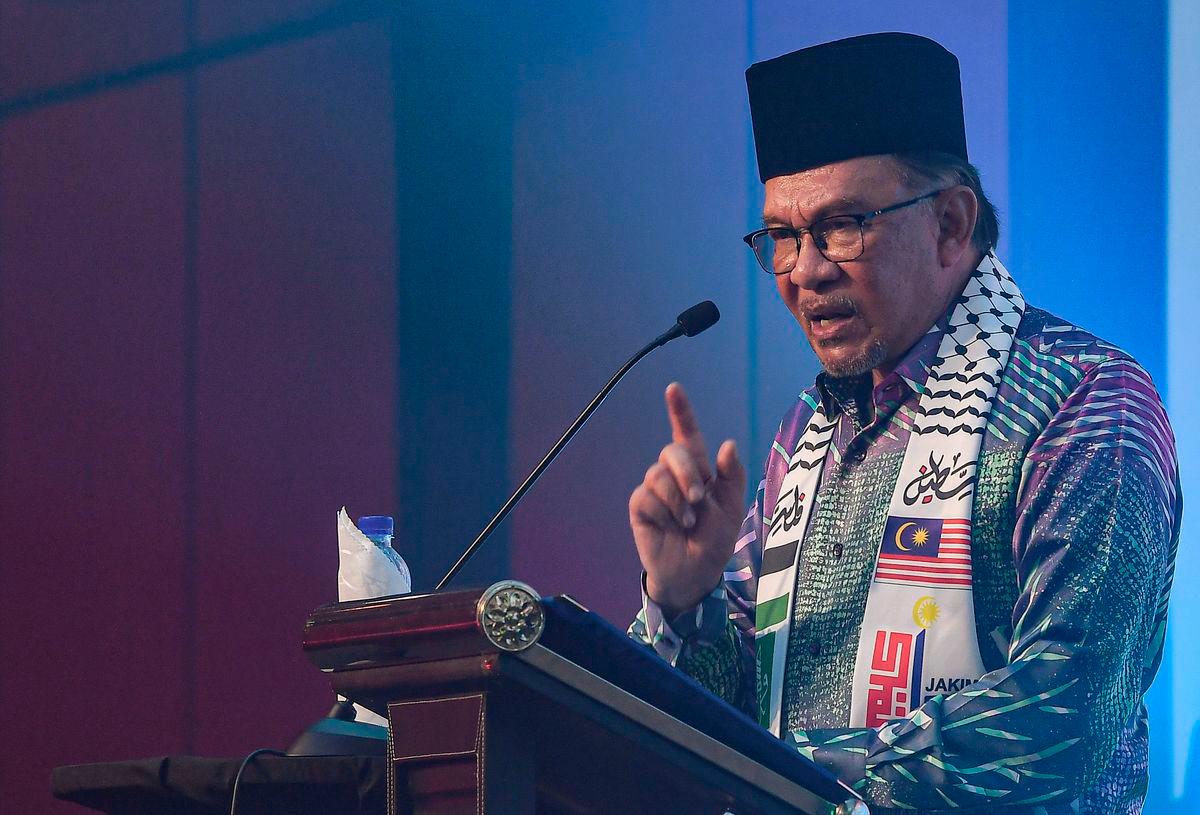KUALA LUMPUR: Prime Minister Datuk Seri Anwar Ibrahim’s swift action in securing the return of Global Sumud Flotilla volunteers from Israel reflects Malaysia’s strong diplomatic capability.
Universiti Malaya sociopolitical analyst Prof Datuk Dr Awang Azman Awang Pawi said the success demonstrated Malaysia’s moral diplomacy and international network effectiveness despite having no official relations with Israel.
“This issue highlights the Prime Minister’s pivotal role in bringing home GSF volunteers from Israel, a complex humanitarian mission that showcased Malaysia’s diplomatic ability in dealing with a regime with which it has no formal ties.
“Anwar employed a ‘cross-border diplomacy’ approach and discreet negotiations through third-party countries such as Egypt, Jordan, Qatar, or Turkiye — nations with direct influence over Israel and access to Gaza.
This reflects a multi-layered diplomatic strategy.”
He said the multi-layered approach includes humanitarian neutrality diplomacy prioritising humanitarian values over politics.
The strategy also involves reputational diplomacy where Malaysia is seen as a strong moral voice against oppression yet remains pragmatic in protecting its people.
Awang Azman said the effort demonstrated Anwar’s diplomatic wisdom as an Islamic leader who dares to speak out against Israel while maintaining negotiation ability.
The government applied several forms of alternative diplomacy that were intelligent and non-confrontational given the absence of official diplomatic ties with Israel.
These included third-party diplomacy, humanitarian diplomacy, and multilateral diplomacy.
“Through humanitarian diplomacy, the focus is not political but rather on the safety of volunteers and universal humanitarian principles.
This is in line with Malaysia’s stance at the United Nations, which emphasises humanitarian corridors for Gaza.
“In terms of multilateral diplomacy, Malaysia can leverage platforms such as the Organisation of Islamic Cooperation, the Non-Aligned Movement, and ASEAN Dialogue Partners to exert indirect diplomatic pressure on Israel through collective voices.”
He noted this success strengthens the public’s perception of the Prime Minister as a courageous, principled and empathetic leader domestically.
Internationally, it reinforces Malaysia’s position as the ‘moral voice of the Global South’ championing universal humanitarian values.
“Strategically, this positions Anwar as a modern and progressive Islamic leader who wisely balances principle and geopolitical reality.
It enhances his image as a ‘negotiator with conscience’ — a leader who upholds justice without bowing to global pressure.
“In this context, Anwar has strengthened Malaysia’s diplomatic legacy as a nation that speaks boldly yet acts wisely — a rare balance in today’s international arena.”
Geostrategist Prof Dr Azmi Hassan said Malaysia effectively utilised its strong ties with countries such as Jordan and Turkiye which maintain official communication channels with Tel Aviv.
He said the achievement was not coincidental but the result of consistent strategic diplomacy by the national leadership.
“This highlights how crucial close relationships between leaders are.
We cannot sideline countries that maintain relations with Israel, as such links can be tactfully used to exert diplomatic pressure... this is the kind of subtle diplomacy the Prime Minister has displayed.”
Azmi said Anwar had applied similar diplomatic strategies in resolving other regional conflicts including efforts to broker peace between Thailand and Cambodia.
“The immediate ceasefire between Thailand and Cambodia two months ago was achieved because the Prime Minister engaged major powers such as China and the United States to be part of the negotiation table.
“This demonstrates his strategy, never sidelining global powers but rather leveraging them when it benefits Malaysia as a whole.”
Azmi said Anwar’s international standing remains strong as he is recognised globally as a principled, articulate and respected leader.
He consistently defends national dignity, justice and security at international platforms.
However, he expressed concern over domestic sentiment noting some quarters remain reluctant to acknowledge the Prime Minister’s diplomatic success due to political differences.
Issues of sovereignty, security and national interest should transcend partisanship. – Bernama









